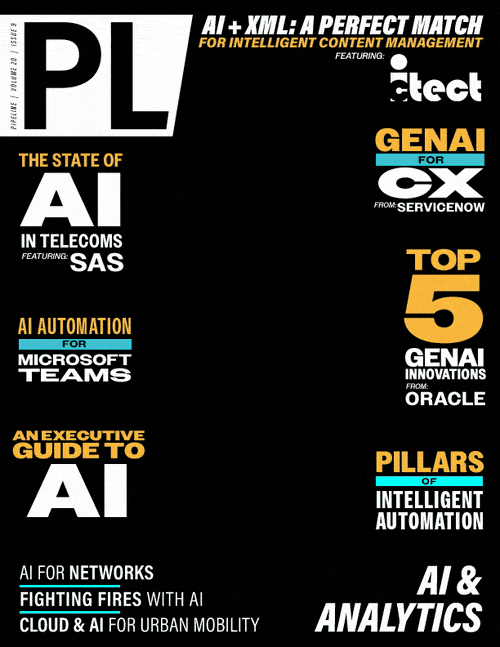Artificial Intelligence and Intelligent Content
Made for Each Other
Role of Intelligent Content in
Providing Quality Data
Intelligent Content plays a pivotal role in ensuring the quality of data used in AI systems. Unlike traditional data management approaches, Intelligent Content leverages advanced metadata tagging and semantic analysis to provide a more nuanced understanding of data. This enables more accurate and contextually relevant information retrieval, which is crucial for training AI models.
One of the key advantages of Intelligent Content is its ability to structure data in a way that is both human-readable and machine-processable. This dual capability ensures that information is accessible to information workers while also being optimized for AI algorithms. Thanks to the prevalence of XML Schemas that can model complex information needed for AI, Intelligent Content can create “AI-readable documents” needed for specific AI applications. For example, in the publishing industry, Intelligent Content can categorize articles by topic, sentiment, and audience relevance, making it easier for AI systems to recommend personalized content to readers.
Furthermore, Intelligent Content allows for the integration of diverse data sources, providing a more holistic view of the information landscape. This comprehensive approach reduces the likelihood of missing critical data points and enhances the overall quality of the dataset. By providing a structured, enriched, and comprehensive data framework, Intelligent Content significantly improves the reliability and accuracy of AI systems.
AI's Role in Enhancing Intelligent Content
Historically, creating high-quality XML and managing complex content has been a challenging task for organizations. The manual process of tagging and structuring data is labor-intensive, time-consuming, and prone to human error. Additionally, the complexity of content management increases exponentially with the volume of data, making it difficult to maintain consistency and accuracy.
Organizations often struggle with issues such as inconsistent data tagging, outdated content, and lack of integration between systems. These challenges can lead to fragmented data silos, making it difficult to access and utilize information effectively. Moreover, as the volume of digital content grows, the task of managing this content becomes increasingly complex, requiring more sophisticated tools and techniques.
AI-Assisted Creation and Management
AI technologies are revolutionizing the way organizations create and manage Intelligent Content. By automating routine tasks, AI can significantly reduce the time and effort required for content creation and management. For instance, AI-powered tools can automatically tag content with relevant metadata, classify documents, and even generate summaries, making it easier for information workers to find and utilize the information they need.
One notable example is the use of natural language processing (NLP) algorithms to analyze and categorize text data. NLP can identify key themes, extract relevant information, and categorize content based on various criteria, such as topic, sentiment, and audience. This not only improves the accuracy of content categorization but also enhances the discoverability of information, making it easier for users to access relevant content.
AI also plays a crucial role in content personalization. By analyzing user behavior and preferences, AI systems can deliver personalized content experiences tailored to individual needs. This level of personalization is particularly valuable in industries such as e-commerce, media, and entertainment, where delivering the right content to the right audience is critical for success.
Several AI tools and platforms are available that facilitate the creation and management of Intelligent Content. For example, tools like Google Cloud's Natural Language AI and Microsoft Azure AI Services offer advanced capabilities for text analysis and
content categorization. These tools leverage machine learning algorithms to continuously improve their accuracy and effectiveness, providing organizations with powerful tools to manage their
content.
Enterprise Benefits: Efficiencies and Cost Savings
Integrating AI and Intelligent Content into enterprise workflows offers significant efficiency gains. AI's ability to automate repetitive tasks frees up valuable time for information workers,
allowing them to focus on higher-value activities. For instance, in the financial services sector, AI-powered systems can automate data entry, document processing, and compliance monitoring,
reducing the burden on employees and
Intelligent Content further enhances efficiency by providing a structured framework for managing information. By organizing data in a consistent and accessible manner, Intelligent Content
simplifies information retrieval, reducing the time spent searching for relevant content. This is particularly valuable in large organizations with vast amounts of data, where finding the right
information quickly can significantly impact


















